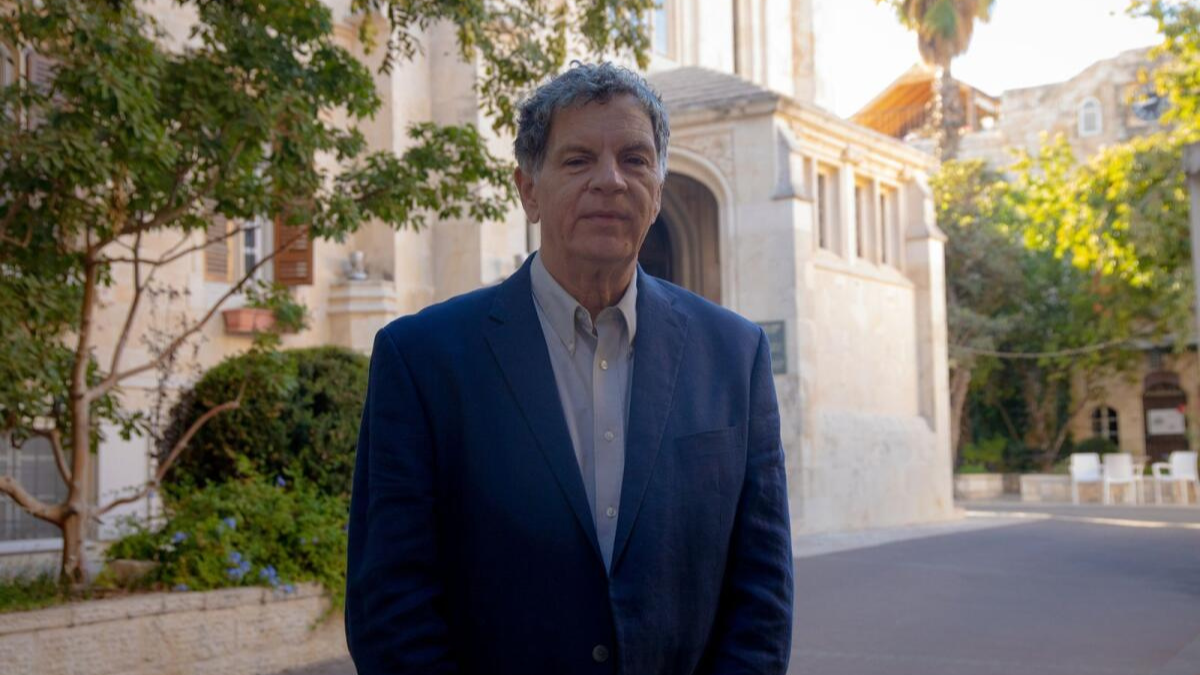

Jerusalem Pastor Speaks on War with Hamas
Moral clarity, postmodernism, and the need for Jesus when considering the West’s reaction to the war in Gaza.
11/15/23
John Stonestreet Kasey Leander

Recently on the Upstream podcast, my colleague Shane Morris sat down with David Pileggi, the rector of Christ Church in Jerusalem. His work there involves helping Palestinian children through increased access to hospital care and combating trafficking. He also educates Christians about the Jewish context of their faith. Fr. Pileggi has served as an Anglican minister in Jerusalem for over 40 years.
From that perspective, he thinks that the most important aspect of the Israeli-Hamas conflict is missed by many in the West.
Probably at its heart there is a religious underpinning that most secular people in the West don’t understand because many Westerners, especially Western elites, can’t take religion seriously. And so, they focus on land, or refugees, or human rights, etc., etc. And I don’t want to deny that any of these are important, especially to the Palestinians. But there’s something a lot deeper that’s going on.
In general, shaped by a secular vision of life and the world, Westerners tend to underestimate the significance of religion. In particular, Westerners fail to understand how committed Islamists are to their vision of life and the world, especially considering Islam’s most significant rival religions:
The Islamicists in Palestinian society said, we don’t want two states for two people. We want Palestine to be free from the river to the sea. We want Palestine to be an Islamic state. The Jews have no theological right. They have no claim theologically to a piece of territory that was once Islamic and really technically can’t revert to or can’t become Jewish, because Jews, like Christians, are second-class citizens within the Islamic world, and they have no right to rule or to reign over Muslims or have no right to take control of territory that was once Islamic.
There’s also the issue of moral clarity, something that a secular vision of life and the world also cannot sufficiently undergird.
What happened on October the seventh was a genocide. Genocide can never, ever be justified. And if people don’t have enough maturity and enough historical nuance, or maybe even just common sense to say, “I support the Palestinians, but at the same time, I’m going to condemn Hamas, or I cannot support what they did,” then our society is in huge trouble. And I almost worry more about the United States than I would worry about Israel.
Postmodernism further corrupts the secular vision by superimposing an alternative moral vision, a pre-determined moral vision built on Marxist categories of oppressed and oppressors. This inevitably devolves into what Fr. Pileggi called a “romanticized” view of people, rather than a realistic one.
Being pro-Palestinian also means you don’t romanticize the Palestinian people. You see them honestly for their good points and their bad points, for their weaknesses, for their strengths. And the same goes for Israel, right? Our relationship with the Jewish people, it’s not based on certain romanticism or biblical fundamentalism. … And by the way, neither should the basis of our support for Israel be some kind of Islamophobia or dislike of Arabs, whatever that may be. … We look at Israel, we can see the good parts of the society and we can also see, you know, where the society is weak and perhaps fails ethically or morally.
Fr. Pileggi’s realism is helpful, not only because of his decades of experience in this contentious part of the world, but also because it’s a biblical realism. Though his prescription may sound simplistic, it’s where any Christian vision of human conflict should leave us:
You know, people tell me, “Well, what’s the answer to this Middle East problem?” The answer is Jesus. Right? Jesus is the answer. And I think one of the things that we’ve learned over the years [is] that saying you believe in Jesus, saying you admire Jesus, doesn’t get you very far. … If there’s going to be transformation in the lives of a community, or transformation in a family or a society, [we] have to put the teachings of Jesus into practice.
To hear the entire conversation with Father Pileggi, rector of Christ Church Jerusalem, search for the Upstream podcast with Shane Morris, wherever you listen to podcasts.
This Breakpoint was co-authored by Kasey Leander. For more resources to live like a Christian in this cultural moment, go to breakpoint.org.
Have a Follow-up Question?
Up
Next

Related Content

© Copyright 2020, All Rights Reserved.













